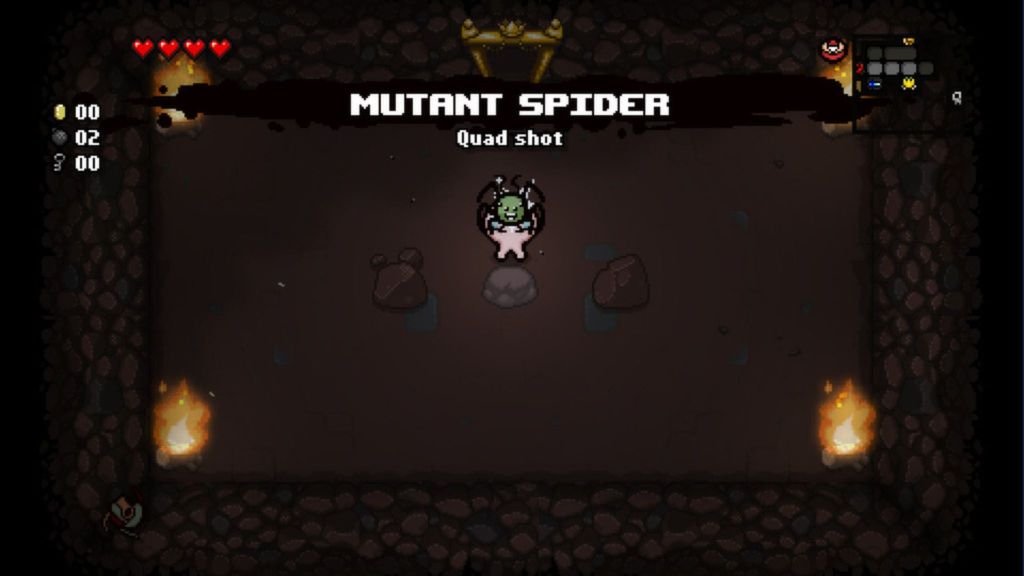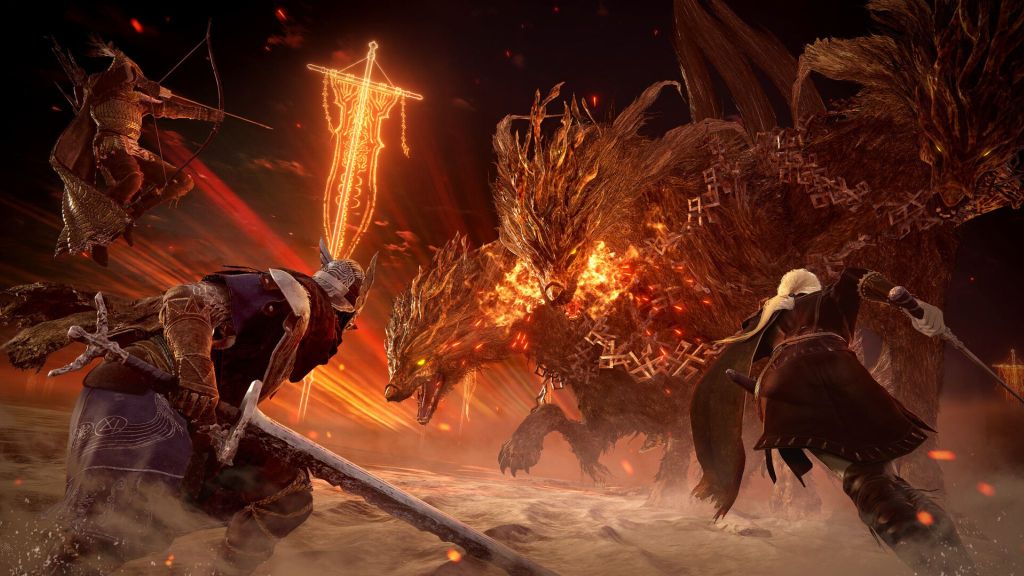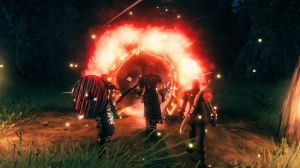With Elden Ring Nightreign, FromSoftware is stepping outside its comfort zone to try something new, reusing Elden Ring‘s acclaimed combat structure as the foundation for a cooperative roguelite game. Since this is FromSoft’s first venture into the popular genre, no one expected them to get everything right. Still, Nightreign is another hit by the studio, offering a thrilling co-op experience that allows fans to fight bosses nonstop while trying to survive each run. However, Nightreign has a few flaws that prevent it from being a true masterpiece, the biggest of them being how it handles loot and rewards, one of the key aspects of the roguelite game loop.
Videos by ComicBook.com
Warning: Spoilers below for Elden Ring Nightreign
While there are many different flavors of roguelite available, they all revolve around a run-based gameplay loop in which players must collect randomized rewards to increase their ability to survive encounters that become deadlier as time goes by. Dying means restarting a run, with permanent progression sprinkled over the loop to keep players engaged. In some roguelites, like bullet-hell Vampire Survivors, the challenge increases as the clock ticks, while in others, like deck-builder Slay the Spire, enemies become tougher as you reach higher levels of the titular tower. Still, regardless of their gameplay style, every roguelite invites players to make meaningful choices that can make victory easier or doom them to a bitter defeat.

[RELATED: 3 Ways an Elden Ring TV Show Could Work]
Regarding the random loot and rewards available in each run, there are two primary schools in roguelites, each capable of birthing genre-defying gems. The Binding of Isaac, for instance, is a perfect example of a fully randomized loot system. There’s no telling what upgrades (and downgrades) you’ll encounter in each run, making every new attempt truly unique. Still, every reward is inherently helpful, and while some items synergize better than others, they will all give you some advantage. So, even though The Binding of Isaac is fully randomized, it’s always exciting to stumble upon new loot, as even minor improvements take you one step closer to victory.
Supergiant Games’ Hades, on the other hand, actively interferes with the odds of finding specific Boons, the upgrades that improve the character’s basic attacks and evasion. Once a player opts for rooms that grant a certain God’s Boons, the likelihood of finding that same God again increases. That’s essential for Hades because the game offers a number of weapons, each with a different playstyle, that can benefit more from one type of upgrade or the other. Plus, rarer rewards can only appear after the player has collected specific minor rewards, and there are even Boons that have several others as a requirement before being added to the random pool. So, while each run of Hades is still unique, the rewards are semi-randomized to compensate for the increased combat complexity. Elden Ring Nightreign‘s combat is even more complex than Hades. Yet, it uses a fully randomized reward system.
Elden Ring Nightreign Reward System Is the Game’s Most Unsatisfying Aspect

In Elden Ring Nightreign, there are three main ways to become stronger and increase both your survivability and your damage output. First, you can level up, automatically increasing the stats associated with your class strengths. That means the Raider, a class designed as a frontline melee warrior, increases its Vigor and Strength more than anyone else, getting more health points than the average and hitting harder with colossal weapons. Meanwhile, the Recluse, the team’s wizard, gets a bigger boost in Mind, greatly expanding her FP bar. This streamlined level-up system means each playable character improves its core abilities as the run progresses. There’s no player choice involved in this process, as it suffices to press a button at a Site of Grace to turn your runes into levels.
Where players can directly influence their build is through the loot they find spread all over Limveld. In Elden Ring Nightreign, each weapon you find has a passive ability that remains active as long as it remains in your inventory. So, that means you can collect weapons you are not interested in using, only to keep their passive effect. There are six slots for weapons, and a build only becomes effective at taking and dealing damage through the careful stacking of different effects. Defeating an enemy with a health bar, either a boss or a horde of enemies, also gives players a special reward. This reward gives you two or three options, depending on the difficulty of the boss, and you can only pick one. The possibilities include weapons or attribute increases, like more health or poise.

While Elden Ring Nightreign‘s reward system seems great on paper, the more you play, the more you realize it’s deeply flawed. The loot you find and the reward options you get for beating bosses are completely random, regardless of the classes at play or your previous choices. That means it’s not rare to never find a weapon that fits your build, or, even worse, to kill a boss only to find all reward options useless. There are several runs in which you are faced with completely unhelpful choices after spending time to take down a boss. For example, you could be asked to choose between three weapons, all with a passive that increases the power of a spell class, with a character that doesn’t use spells — this is not a random example, by the way.
Elden Ring Nightreign bosses are tuned for high difficulty to compensate for the destructive potential of players working together. That means bosses have high resistance, huge health pools, and some hit like bulldozers. To survive, you must collect rewards that stack well together, but the complete randomness of the loot often causes some players to be underpowered compared to their teammates. More often than not, despite everyone getting a similar level due to shared runes collection, the luck factor that goes into loot and rewards means you are either carrying someone else or being carried, which is not fun. Plus, there are some unfortunate runs where no one finds the rewards they need to keep up with the pace of bosses, meaning it’s nearly impossible to avoid defeat.
It’s fair to say the vast majority of the player base wants bosses to be challenging, so undertuning the battles to compensate for the lack of relevant loot would be a mistake. However, in a roguelite, you either need every reward to be useful or allow players to make meaningful choices that can affect the outcome of battles. Choosing between three options that serve no purpose is frustrating because you wasted your time killing a boss for a reward that doesn’t help you progress your build. As such, the reward system should be reworked to be less random, offering only loot options that are good for the current team and rewards that make sense for each character.
Elden Ring Nightreign is currently available for PC, Xbox One, Xbox Series X|S, PS4, and PS5.
How do you feel about the rewards system in Elden Ring Nightreign? Join the discussion in the comments!








